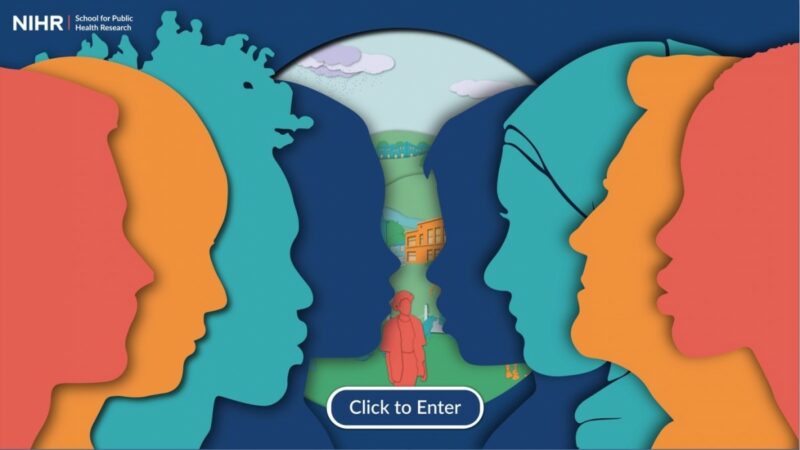Project overview
This nationwide Public Mental Health (PMH) programme builds on the groundwork done during 2017-2022 (Phases 1 and 2) which identified the broad determinants and core outcomes of public mental health, as well as interventions to improve wellbeing and reduce inequalities.
The 2023-2027 programme (Phase 3), funded by the NIHR, plans a new series of projects which will identify effective and cost-effective ways to improve public mental health across the life course.
We are organised into three workstreams:
- Harnessing community assets to improve mental health and reduce inequalities
- Strengthening systems to support groups at greatest risk of poor mental health
- Cross-programme work – ways in which schools and workplaces promote good or poor mental health
The programme is run in collaboration with several universities including University of Bristol, Fuse (the universities of Durham, Newcastle, Northumbria, Sunderland, and Teesside), University of Sheffield and University of Cambridge.
Project details
Public mental health is the art and science of promoting mental health and wellbeing, and preventing poor mental health.
It acknowledges that the physical, familial, social, cultural, economic, and political environments in which people are born, grow, live, work and age have important implications for mental health.
Public mental health is an international priority and a major challenge for public health practitioners. There is not much evidence on effective interventions, yet the need is clear.
The Public Mental Health Programme aims to respond to this need and generate new knowledge that practitioners can use to meaningfully make a difference.
McPin is the public involvement lead in the programme 2023-2027. This includes a Public Involvement Co-ordinator who will drive creativity and lived experience practice, working across the entire programme to ensure diversity in public involvement and engagement.
The aim is for public partners to both inform and shape research as it develops, so that voices and expertise from lived experience become embedded in the process, into the heart of research.
This high-impact strategy will be achieved through co-producing work with research teams, employing peer researchers to work in research teams and engage the wider public in conversations and knowledge-sharing activities. This will include the involvement of community organisations as well as individuals.
We continue to engage the public through workshops, consultations, and social media, trying to expand the reach of the Public Mental Health Programme by influencing the way research is done and how the findings are shared.
One way we are doing this is making sure a diversity of people are involved at every stage of the study – people of different ages, gender identities, backgrounds, ethnicities, geographical locations and lived experiences of mental health.
We are also making sure often-unheard voices are sought out and truly listened to. Their perspectives and lived experience expertise are critical.
The research programme will use a range of approaches, including mixed methods evaluation, economic evaluations, participatory action research, data science using national datasets, and systems simulation approaches to investigate promising interventions and their impact on public mental health.
Within each workstream, there is a series of new studies currently being planned. The following are those that have started. Others will follow:
Workstream 1: Harnessing community assets to improve mental health and reduce inequalities
Study one: Starting in January 2023, led by academics at University of Cambridge and Imperial College London, this project focuses on learning from COVID-19 adaptations, exploring if digital tools can be used to support the wellbeing of everyone.
Workstream 2: Strengthening systems to support groups at risk of poor mental health
Study two: Starting March 2023, led by academics at University of Bristol, this project focuses on supporting educational and youth organisations to deliver self-harm and suicide prevention and postvention. It is a mixed methods study and will co-produce guidance with young people.
Read more about Phases 1 and 2 of the Public Mental Health Programme, which has now ended.
For more general information about the project, please email [email protected].
You can also read more about it in this blog:
Related blogs
Related projects
Work with us
We are always excited to hear from others who want to collaborate on mental health research. From delivering peer research to helping you with public involvement strategies and providing training, get in touch to chat.







